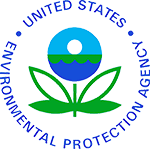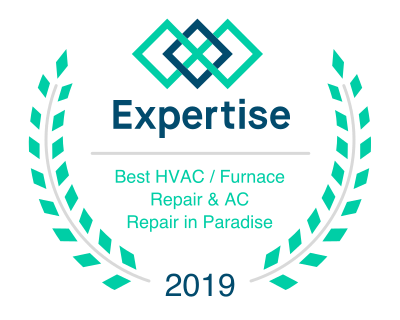One of the most important items in your checklist for preparing your home for summer is making sure your HVAC system is in good working condition. With temperatures rising to 100 degrees Fahrenheit and above, ensuring good airflow with your AC is a must. However, you can expect to have a frustrating and restless summer in Las Vegas if your air conditioner isn’t working properly or there are lingering odors due to a need for a filter replacement—both significant comfort issues.
While some HVAC problems such as condensation build-up can be easily solved by performing relatively easy maintenance tasks like filter replacement, others can be bigger and more complex issues that require professional repair. If you’re unsure whether or not your residential HVAC system is in need of repair, look out for the following three signs: any unusual noise, significantly reduced lifespan or an issue with the temperature controls.
1. Your HVAC is Blowing Out Warm Air
Few things in the world are more useless than an HVAC system that blows out warm air during summer. If your air-conditioner is behaving this way, it could be due to a variety of issues, which can range from minor things like blocked airflow to major ones that impact the core functionality of your AC. A clogged air filter, dirty condenser coils, and closed or blocked return vents are some examples of problems you can fix yourself. Nonetheless, if these aren’t the reasons why your equipment is producing warm air, then you probably need to hire an HVAC repairman.
Causes of an HVAC System Blowing Warm Air
- Low Refrigerant
Low refrigerant is a common cause of warm air coming out of an HVAC system. An air-conditioning unit uses refrigerant that flows in a closed-loop to produce cooling power. Since it won’t be used up, the lifespan of the refrigerant in your system can only be reduced if there’s a leak, an issue demanding immediate attention.
A refrigerant leak is a problem that must be fixed as soon as possible because it poses health risks to you and your family. Even if you’re able to locate the leak and know how to fix it, it’s best to leave the task to a professional. Refrigerant is poisonous and must be handled with caution.
- Leaky or Damaged Air Ducts
Leaky or damaged air ducts are another possible reason why your HVAC system is blowing out warm air. The ducts transport cooled air from your air-conditioner to your living space. If they’re leaky, loose, or broken, the conditioned air may escape into the attic, crawl space, or elsewhere, significantly affecting the airflow and making your home feel warmer.
Check your ducts for cracks, holes, and disconnected parts. If you find that your air ducts are leaky or damaged, you should call in an HVAC technician for a replacement to deal with the issue.
- Faulty Condenser
Your HVAC unit may also be emitting warm air because of a problematic condensing unit. Located outside, the condenser is the component that produces cool air. It can become ineffective if it loses power because of a tripped circuit breaker or a blown fuse, causing unpleasant noises and reducing the overall lifespan of the system.
If your outdoor condenser keeps tripping the circuit breaker, contact your HVAC service provider. It may be a sign that you have to upgrade your circuit breaker or fuse box. The condensing unit may also malfunction because of a faulty or broken component, which the HVAC technician can help you detect.
- Bad Thermostat
Additionally, a malfunctioning thermostat may also cause your HVAC system to produce warm air. As the “brain” of your air-conditioning unit, the thermostat instructs different components in the system to function and constantly measures and reevaluates those instructions for optimal comfort.
If your system isn’t blowing out cool air, it may be because someone tampered with the temperature settings or accidentally hit the thermostat with an object. Set your thermostat to “cool” and the fan to “auto.” If this doesn’t solve the problem, consider having your thermostat or HVAC system checked by an HVAC technician.
2. Unusually High Utility Bills
According to the Department of Energy, heating and cooling account for approximately 48 percent of the energy consumption in a typical American home. So, if your utility bills are getting out of control, it’s probably an indication that something is wrong with your HVAC system. There are a number of reasons why your air conditioner isn’t energy efficient, from a clogged air filter to failing components. If you have a clogged air filter or dirty coils, you can attempt to clean the filters yourself or call an HVAC company to arrange a maintenance visit.
Causes of Unusually High Energy Bills
- Failing Components
In the case of unusually high energy bills, one of the biggest concerns is the possibility that a certain component in your HVAC system is malfunctioning. Components such as motors, compressors, and capacitors will experience wear and tear over time, which can reduce their effectiveness and cause your air-conditioner to become less efficient, making noise, and shortening its lifespan.For instance, a faulty component can cause the condenser to draw too many amps, resulting in higher utility bills.
If left unattended, the condenser may consume more than double the usual amount of energy or break down. An early warning sign of this problem is an odd smell emanating from your air conditioning unit, significantly impacting its performance. You’ll notice this most strongly inside your house, and this is a red flag that requires immediate attention to avoid a spike in your energy bill.
Proper maintenance is the most effective way to prevent faulty components. However, if a component in your HVAC unit is already in bad shape, and you feel a drastic heat difference when you touch your air conditioning, this is a red flag that needs addressing. Contact your HVAC service provider before the problem worsens. Efficient ac repair is crucial to prevent severe damage from escalating.
- Faulty Air Ducts
In this blog, we also address another significant issue. Besides making your home less comfortable, faulty air ducts can also contribute to higher energy bills. If there are leaks or holes along your ducts, your HVAC unit needs to produce more conditioned air to compensate for the air that escaped from the ductwork. This causes your utility bills to go up. In other words, you’re paying for cooled air from your air conditioning that never made its way into your living space.
Since air ducts are usually hidden behind walls and ceilings, it can be difficult for you to inspect and fix them. To keep your electric bills low, enlist the services of an HVAC technician to have your ducts checked and repaired on a regular basis. According to the Department of Energy, 20 to 30 percent of conditioned air that moves through air ducts in a typical home is lost due to leaks, holes, and loose joints. So, keeping your ducts in good condition can significantly reduce your energy bills.
- Bad Installation
The way your HVAC system was installed can have an impact on its efficiency. Problems that can occur if you didn’t hire the right HVAC contractor to install your air conditioning unit include missing components, poor brazing and welding, bad electrical connections, and non-sealed duct connections. Such problems not only drive up your utility bills; they can also result in ineffective cooling and more frequent breakdowns.
If you aren’t sure whether or not your air conditioner is properly installed, call a reputable HVAC company to perform a thorough inspection. The necessary ac repair needed can be anything ranging from the addition of a component to an extensive re-installation project.
3. Strange Noises Coming from Your HVAC Unit
It’s normal for HVAC systems to produce some sounds while they’re running, but certain types of sounds may indicate that your equipment is in need of repair. The following is a list of noises that warrant attention:
- Clicking sounds from the outdoor condenser – This can mean that there’s a small object obstructing the fan in your condensing unit. Inspect the fan and remove anything that may be in contact with it. Make sure you turn off your system before doing this.
- Clicking sounds from an outdoor condenser that won’t turn on – This type of clicking sounds may be a sign of an electrical problem affecting one or more components in the condensing unit.
- Squealing sounds from indoor unit – Squealing noises are often a good indicator that the fan belt in your indoor HVAC unit is faulty. These sounds may come and go, so you may think that it isn’t a major problem. Nevertheless, if the belt is damaged, it may eventually break and result in a breakdown. As such, it’s better to have your system inspected and fixed before the problem escalates.
- Metal-on-metal screeching sounds – Such sounds often come from your outdoor condensing unit. They may result from worn bearings in the fan motor. To fix this problem, you probably have to replace the fan.
- Banging or clanging sounds from the outdoor condenser – When your outdoor unit is producing banging or clanging noises, it’s likely that the fan in it is hitting something. It may be because of the presence of a large obstruction or the fan mount has come loose. The wobbling that results from a loose mount can cause the fan to hit the cage around it.
- Gurgling or bubbling sounds – This may be caused by gurgling in the condensate drain line. If this is the problem, it can mean a number of things, such as a clogged drain or malfunctioning condensate pump. Another possible reason for gurgling noises is a refrigerant leak, which can lead to bigger problems.
- High-pitched screaming or hissing sounds – These sounds usually come from the compressor, and they may be a sign of a high-pressure buildup in your HVAC system, which can be dangerous. Your air-conditioner should have a safety shut-off switch that automatically shuts your system down when this problem occurs. However, if your equipment continues to operate, you should turn it off until your HVAC technician arrives.
Why It Is Important to Hire a Reputable HVAC Company
There’s an extensive selection of HVAC service providers in Las Vegas, making it difficult for you to know which one to hire. Some homeowners try to save money by choosing air-conditioning contractors that offer the lowest repair fees. However, this may not be the best decision as some companies may skimp on quality in order to make their rates more competitive.
If it isn’t properly fixed, an HVAC problem may recur in the near future and result in another significant expense. Overall, you’ll find that paying more for high-quality HVAC repair services is more cost-effective in the long run.
All HVAC contractors are required to go through the necessary training and obtain a license from their state authorities. However, a reputable company goes the extra mile by ensuring that their technicians undergo training at least once a year. As a result, the technicians are constantly up to date with the latest technologies and changes in the HVAC industry.
With their extensive HVAC knowledge, well-trained HVAC technicians will be able to get to the root of a problem and come up with a thorough solution to minimize future repairs. Also, they can provide valuable advice on how to prevent problems and keep your HVAC system functioning optimally and efficiently. This can help you save money and trouble over the long term.
If your HVAC system is in need of ac repair, The Cooling Company can help you get it ready for summer. We have a proven track record in successfully repairing all kinds of air-conditioning problems. In addition, we offer comprehensive maintenance plans to keep your HVAC unit in tiptop condition and extend its service life. Our services are all competitively priced, giving you great value for money. For more information, feel free to contact us at (702) 567-0707.












